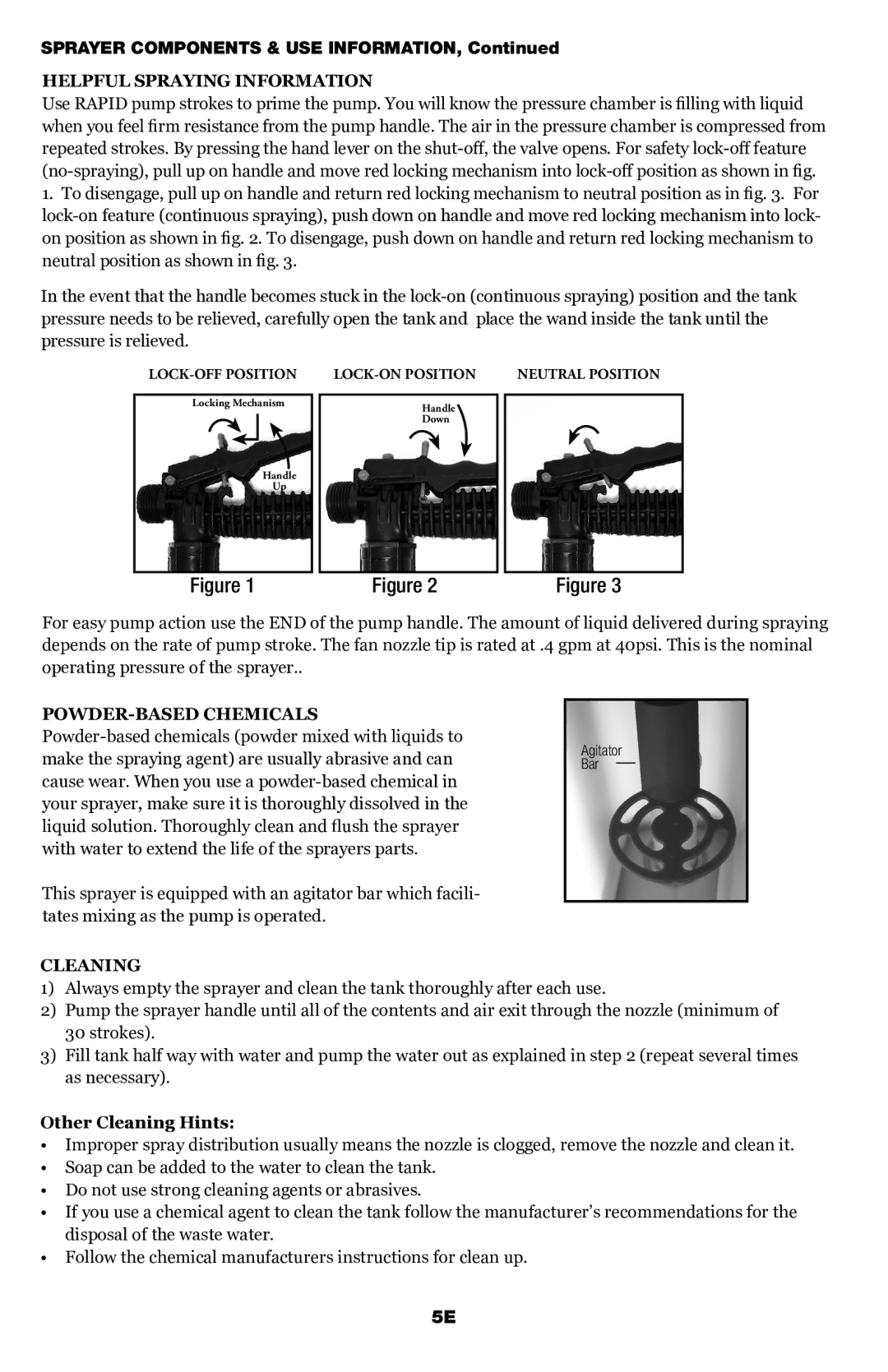
SPRAYER COMPONENTS & USE INFORMATION, Continued
HELPFUL SPRAYING INFORMATION
Use RAPID pump strokes to prime the pump. You will know the pressure chamber is filling with liquid when you feel firm resistance from the pump handle. The air in the pressure chamber is compressed from repeated strokes. By pressing the hand lever on the
1.To disengage, pull up on handle and return red locking mechanism to neutral position as in fg. 3. For
In the event that the handle becomes stuck in the
NEUTRAL POSITION |
Locking Mechanism
Handle Down
Handle
Up
Figure 1
Figure 2
Figure 3
For easy pump action use the END of the pump handle. The amount of liquid delivered during spraying depends on the rate of pump stroke. The fan nozzle tip is rated at .4 gpm at 40psi. This is the nominal operating pressure of the sprayer..
This sprayer is equipped with an agitator bar which facili- tates mixing as the pump is operated.
Agitator Bar
CLEANING
1)Always empty the sprayer and clean the tank thoroughly after each use.
2)Pump the sprayer handle until all of the contents and air exit through the nozzle (minimum of 30 strokes).
3)Fill tank half way with water and pump the water out as explained in step 2 (repeat several times as necessary).
Other Cleaning Hints:
•Improper spray distribution usually means the nozzle is clogged, remove the nozzle and clean it.
•Soap can be added to the water to clean the tank.
•Do not use strong cleaning agents or abrasives.
•If you use a chemical agent to clean the tank follow the manufacturer’s recommendations for the disposal of the waste water.
•Follow the chemical manufacturers instructions for clean up.
5E
